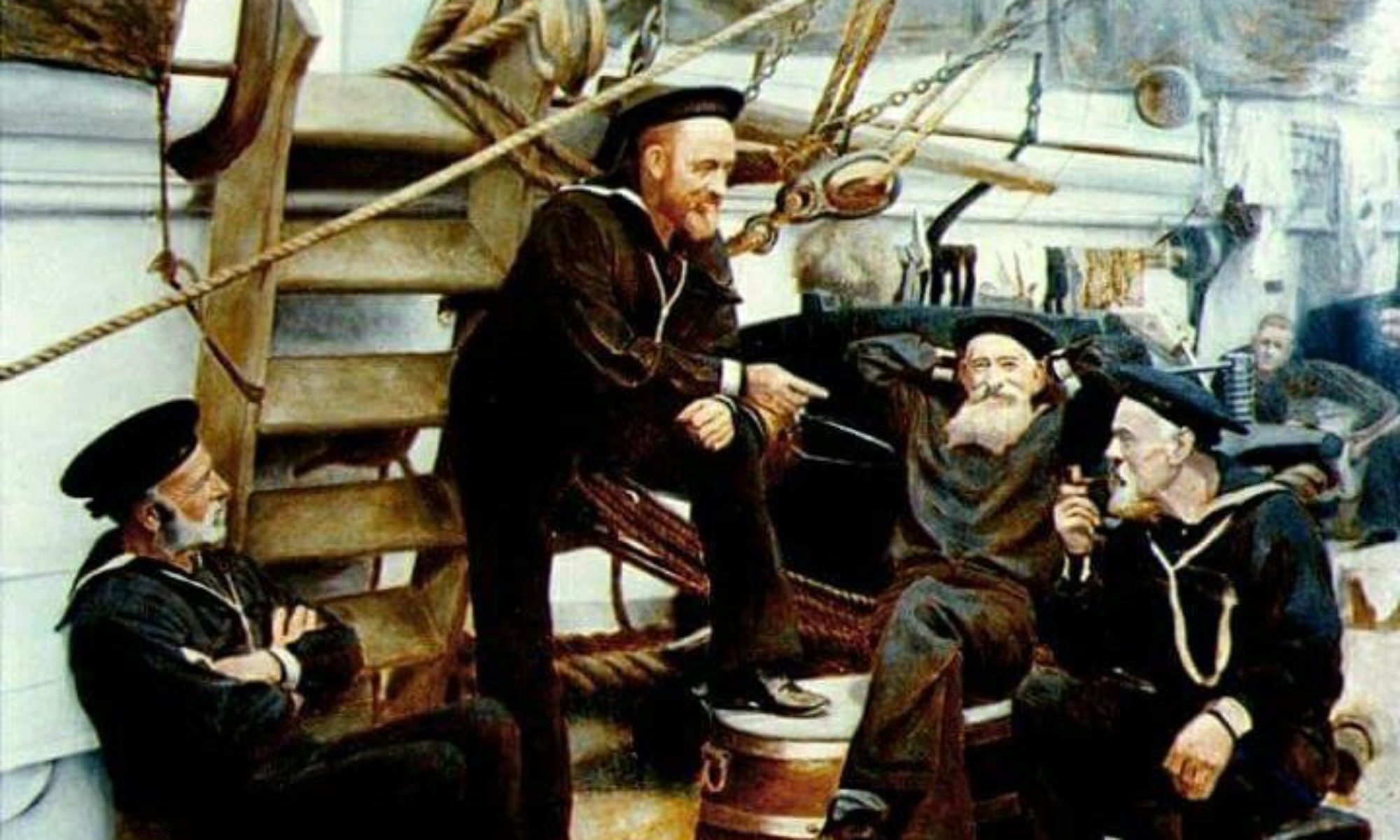16 bells and all’s well
Sixteen bells and all’s well, lights are burning bright!
Since at least the Age of Discovery a ship’s bell has been used to broadcast time aboard ships.
Watch sandglass
A 30 minute sand-hourglass kept the passage of each watch aboard ship. The turning of the hourglass was often the duty of the helmsman or cabin boy. Once the hourglass was turned they would broadcast the time change by striking (ringing) the watch-bell in a distinct manner that told sailors where they were in their watch.
Typical 4 hour watch
In a typical 4 hour watch there is eight half-hour periods. 1 bell meant the sailor had been on duty for 30 minutes, 2 bells meant 1 hour of the watch was completed and so on…8 bells meant that the sailors had reached the end of their watch. When the watch changed, reports were given about the ships condition from the old watch to the new. Most often this was “all’s well and lights are burning bright!”
Bells strikes are in sets of two with any odd bells coming at the end of the sets. This pattern made it easy to count the bells and know what time it was.
In a classical watch rotation each 24 hour period was divided into 7 watches starting at midnight. Each watch lasted for four hours except for the dog watches (from 4 to 6 and 6 to 8 PM) which were only two hours each. Splitting up one watch made an uneven number so everyone rotated through the watches rather than being stuck with the same one.
The only way to be sure of accurate time at sea was for an officer of the deck, or captain to confirm “high noon” with the use of a sextant and the sun. The bell ringing pattern for noon would be: 2 bells, pause, 2 bells, pause, 2 bells, pause, 2 bells.
16 Bells
To mark the New Year they would strike the bell 16 times. The oldest sailor would strike out the old year with 8 bells and the youngest sailor would strike in the new year with 8 bells.
From all of us at the Willapa Seaport Museum we wish you “Sixteen Bells and All’s Well, Lights Are Burning Bright!”




